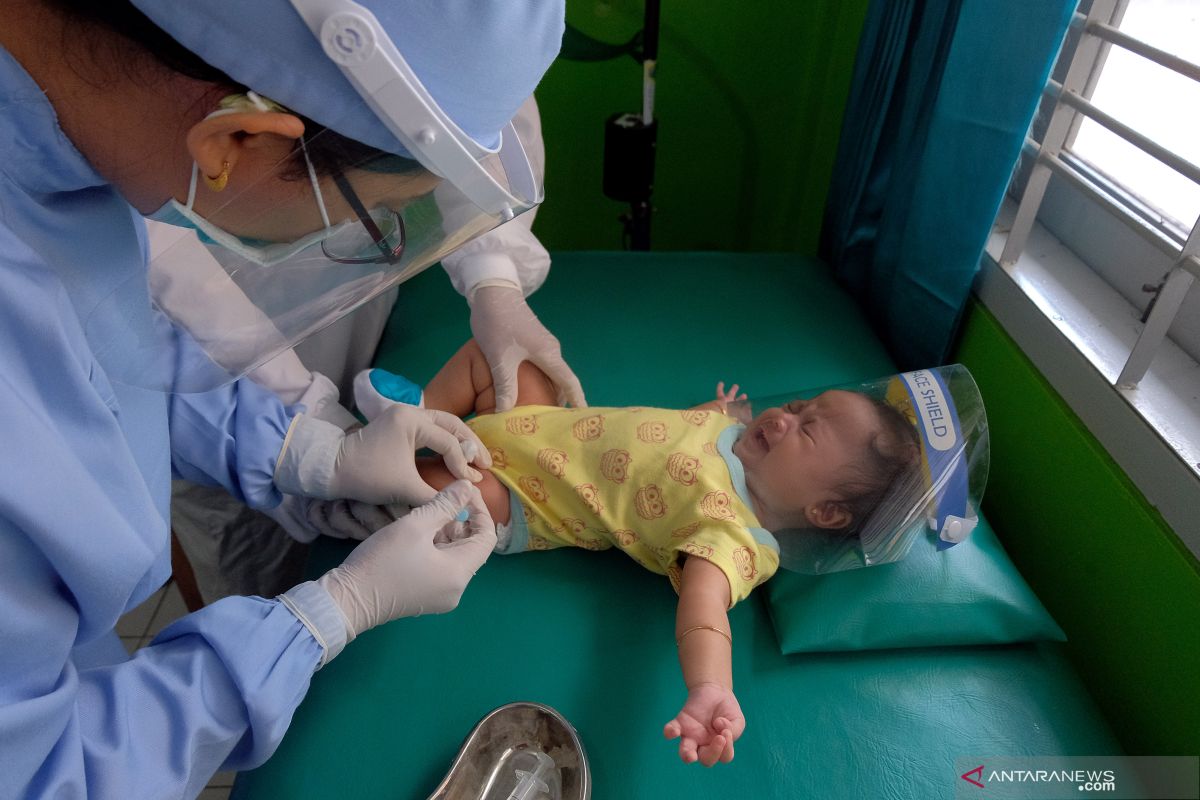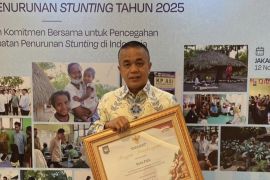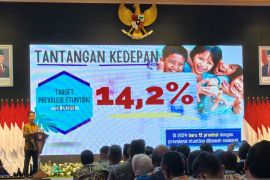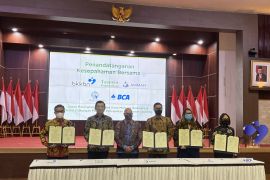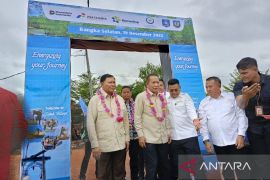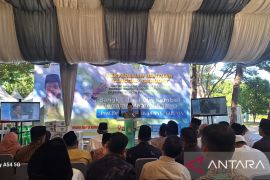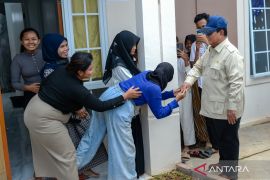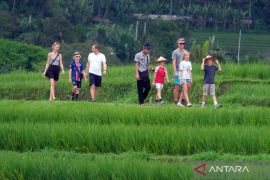To this end, Social Affairs Minister Tri Rismaharini notified journalists here on Monday that she will collaborate with the National Population and Family Planning Board (BKKBN).
Early this year, President Jokowi had tasked the BKKBN with implementing extraordinary programs to lower Indonesia's stunting rate, from 27.9 percent in 2019 to 14 percent in 2024.
Four other provinces that her ministry would prioritize are located in the islands of Sulawesi and Kalimantan, she remarked, adding that one of the action programs of her ministry is to provide fortified rice to teenage girls.
Rismaharini highlighted the vulnerability of several teenage girls in Indonesia to developing anemia owing to the lack of proper nutrition.
Hence, by giving them the rice, fortified by adding micronutrient powder, they are expected to grow up to become more healthily.
After getting married, they will later give birth to healthier babies, she noted.
The government has set a target of lowering the stunting rates in 10 prioritized provinces: Aceh, East Nusa Tenggara, West Sulawesi, West Nusa Tenggara, Gorontalo, Central Kalimantan, South Kalimantan, West Kalimantan, Southeast Sulawesi, and Central Sulawesi.
Related news: Draft state budget must focus on COVID handling: House Speaker
Related news: Walhi activists report several hundred hotspots in S Sumatra's forests
President Jokowi has highlighted the importance of combining the stunting prevention efforts with the government's social safety net programs, including the Family Hope Program (PKH) and the non-cash food assistance program (BPNT).
To attain its national prevalence level of 14 percent in 2024, Indonesia should be able to achieve an annual reduction of at least 2.7 percent in the number of children, with stunted growth.
According to the World Health Organization (WHO), children, with stunted growth, are those whose "height-for-age is more than two standard deviations below the WHO Child Growth Standards median."
ANTARA noted that during the course of the previous years, Indonesia had striven to reduce cases of stunting in different parts of the country since this endeavor is closely related to implementation of the Sustainable Development Goals (SDGs).
Sigi District in Central Sulawesi is one of the regions that is striving to deal with children with stunted growth.
In 2019, the district had 1,199 cases of stunting in children up to 23 months of age and 3,580 cases of stunting in children up to 59 months of age.
In dealing with cases of stunting, the Sigi district government had focused its preventive and mitigation efforts to eradicate childhood stunting in the 10 villages of Lemosiranindi, Pelempea, Morui, Marena, Siwongi, Rantewulu, Waturalele, Langko, Sibalaya Selatan, and Sibalaya Barat.
To handle cases of stunting, the district government has encouraged community members to participate and work towards improving the quality of local food crops.
Related news: Papua police awaits Densus 88's church attack plot probe results
Related news: Jokowi encourages P4G Initiative to facilitate sustainable development
Close
EDITED BY INE
Translator: Desi P, Rahmad Nasution
Editor: Fardah Assegaf
Copyright © ANTARA 2021
